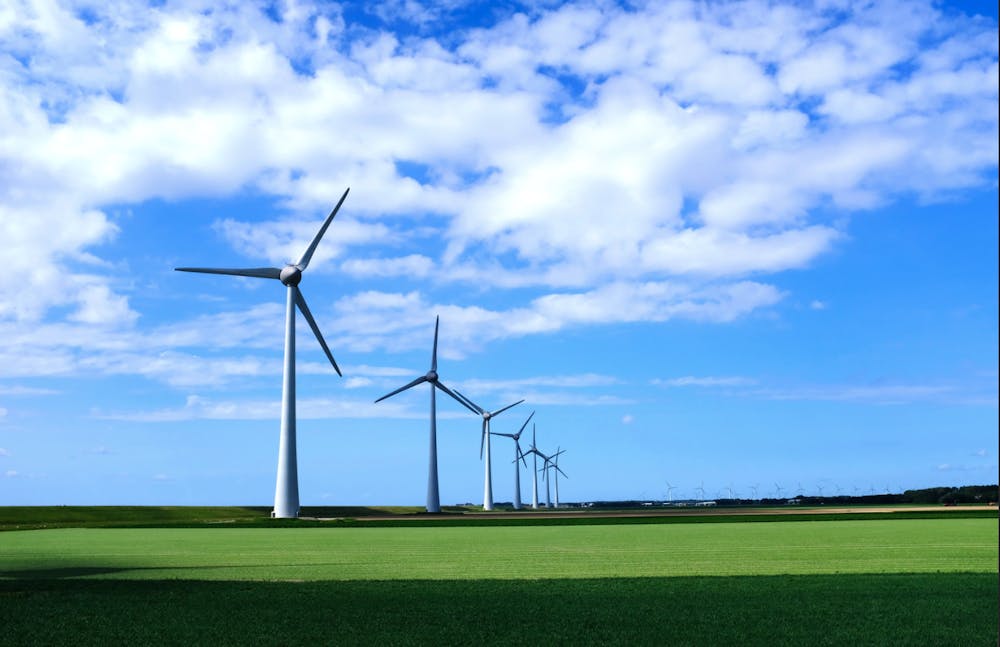The University announced the creation of the Ralph S. O’Connor Sustainable Energy Institute (ROSEI) on April 22 to commemorate Earth Day. ROSEI is meant to serve as the University’s center for research and education focused on creating clean, renewable and sustainable energy technologies.
The institute was launched as the result of a $20 million contribution from the estate of trustee emeritus Ralph S. O’Connor and marks the start of the University’s 10-year, $75 million investment in energy-related research and education.
Environmental Management Professor Benjamin Hobbs, a research committee co-chair of the Sustainability Leadership Council (SLC), will serve as a ROSEI faculty member.
In an email to The News-Letter, Hobbs discussed the motivation for ROSEI.
“Within SLC, several of us felt that this was the time to establish a high profile interdisciplinary energy initiative, preferably a department that would include integrated engineering and policy in new research initiatives to develop and promote renewable energy, teach new curricula and help park cross-University efforts in the areas,” he wrote.
He noted the potential the institute holds for the University’s involvement in the fight against climate change.
“Given the renewed attention in Washington to renewables and climate, the strong commitment of the State of Maryland to efforts in this area and the fantastic interest on the part of students, this the perfect time to form this institute, which will consolidate our existing efforts and provide the foundation for their expansion,” he wrote.
In an email to The News-Letter, Electrical and Computer Engineering Professor Susanna Thon, an academic committee co-chair of SLC and ROSEI faculty member, stressed the importance of the Institute’s work.
“The formation of ROSEI is a significant investment and signal that Hopkins is serious about combatting this crisis,” she wrote. “The more attention this problem gets from powerful people and institutions, the more likely that solutions to it will accelerate. It’s especially important that ROSEI is... also strongly emphasizing policy work and education.”
The three primary goals of ROSEI are enabling a future in which 100% of energy is generated by renewable sources by 2050; advancing biochemical and materials transformation for those which cannot be electrified, including by developing alternative fuels and the capturing; and repurposing of fossil fuels byproducts and allowing for affordable and equitable implementation.
Keelin Reilly, treasurer and former president of Students for Environmental Action (SEA), is optimistic about the institute’s possible accomplishments.
“The biggest thing I want to see from the new institute is really meaningful contributions to the necessary work of transitioning to a carbon-free electricity generation system, both in the United States and the entire world,” he said. “I really hope that they remain committed to that goal... Carbon-free and renewable has to be the focus.”
ROSEI will be led by Founding Director Ben Schafer and will feature six core faculty members and 26 associated faculty members from across the University’s divisions. It will also create fellowships over its first 10 years for postdoctoral scholars and graduate students.
Karen Lancaster, the assistant vice president of external relations for the Office of Communications, noted that ROSEI has started some of its work already, though its fellowships have not yet been launched.
“The Institute’s multidisciplinary work has already begun, with collaboration across divisions to establish and initiate the Institute’s priorities,” she wrote. “Details on fellowships will be forthcoming.”
Lancaster also reflected the University’s gratitude for the contribution and the O’Connor family’s commitment to innovation.
Thon shared her hopes for ROSEI’s impacts on the University community.
“I hope that ROSEI has a galvanizing effect for more work and action around energy issues among the students, faculty and staff. I hope that ROSEI will inspire faculty working in research areas that could be applied to problems in energy... playing an organizing role for students who are interested in areas related to energy,” she wrote.
O’Connor, the institute’s namesake, graduated from the University in 1951 with a degree in Biology. He pursued a career in the oil and gas industry, becoming president of Highland Oil and later chairman, president and chief executive officer of Highland Resources.
Reilly remarked on the irony of ROSEI’s namesake profiting from the fossil fuel industry, but remains hopeful that the mission and integrity of the institute will remain intact.
“It does seem problematic just to have that connection to the fossil fuel industry enmeshed as a fundamental part of this institute that's ostensibly committed to sustainable renewable energy sources,” he said. “I hope that doesn’t compromise the institute’s focus on producing technologies that allow us to end the use of fossil fuels.”
While ROSEI’s goals have broad implications for energy sources, Reilly believes that they fail to address some of the underlying causes of the global climate crisis.
“A major problem is we aren’t really questioning some of the foundational issues behind the current environmental predicament we are in as a world,” he said. “More thoroughly questioning why we use as much energy as we do, why we choose to live in such an environmentally impactful way as we do... Why aren’t we asking those kinds of questions?”





